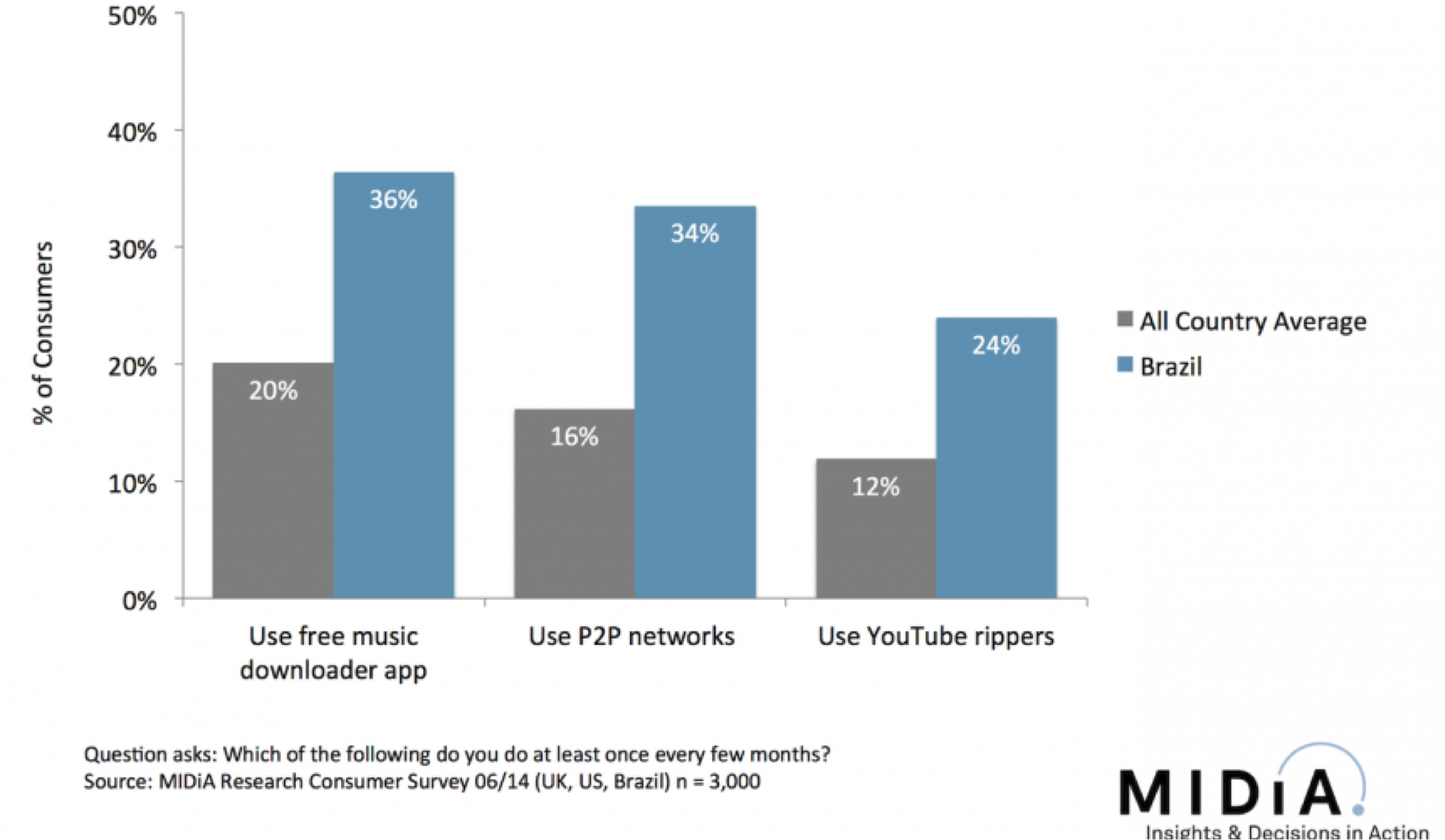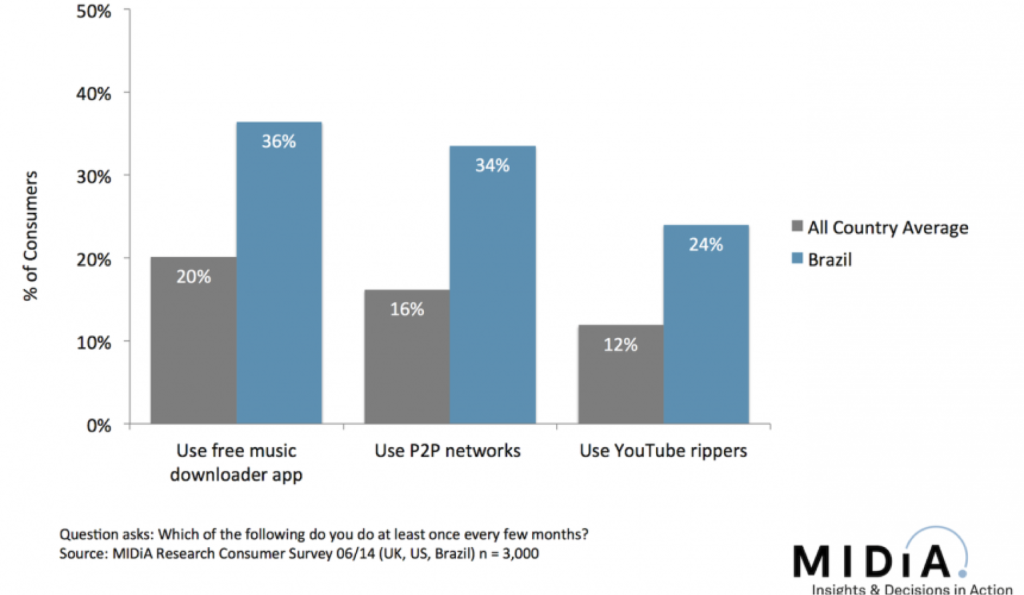Music Piracy In Brazil: Assessing The Impact On Music Consumption


MIDiA is pleased to announce the first report from our new Latin American market analyst Leo Morel. The report ‘Music Piracy In Brazil: Assessing The Impact On Music Consumption’ deep dives into the relationship between digital piracy, its relationship with socio-economic conditions in Brazil and how emerging piracy behaviours are shaping music spending. The report is available now to MIDiA clients here. If you are interested in learning more about how to become a MIDiA Research client please email us at info AT midiaresearch DOT COM.
Here are some highlights from the report.
During the last decade Brazil underwent great economic advances, removing a considerable part of its population from poverty, placing them into the consumer market. Now, these Brazilian citizens aspire to smartphones and tablets in order to access digital content and services. However, many Brazilians, particularly younger ones, have grown accustomed to accessing music illegally, thus creating the key challenge of persuading them to switch to legitimate alternatives. Nonetheless the market opportunities that Brazil presents to the global music industry remain compelling.
Brazilian Consumers Significantly Over Index On Digital Piracy Activity
Key Findings
• 59% of 18 to 24 year olds believe music is worth paying for
• P2P music piracy slightly out performs mobile music piracy in Brazil, even among Digital Natives
• 18 to 24 year olds are both the most active file sharers and the most willing to pay for digital music
• Poor internet connectivity and low income levels are key factors behind Brazil’s elevated music piracy rates
• File sharing penetration decreases with age, falling from half of 18 to 24 year olds to a quarter of over 55’s, however these rates are still markedly above the US and UK
• Willingness to pay for music however rises among those over aged 55


The discussion around this post has not yet got started, be the first to add an opinion.